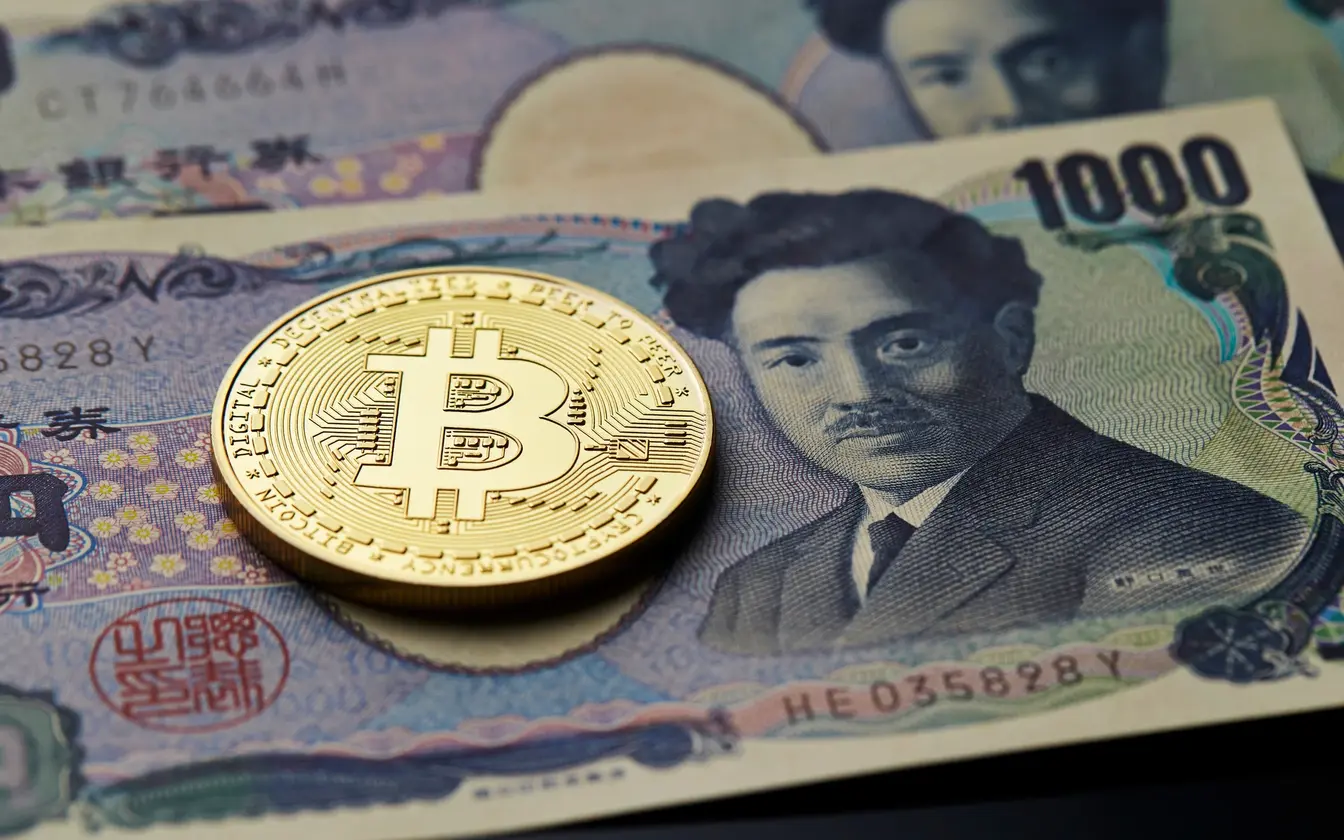The Japanese yen (JPY) is experiencing a significant rally against the U.S. dollar (USD), echoing the market dynamics of early August, when global stock markets and bitcoin (BTC) saw sharp declines. This recent surge has seen the yen appreciate by 2.4% to 145 per dollar since late Thursday, reversing its weakening trend from the August 5 low of 141.68, signaling a renewed preference for the "anti-risk" currency. The yen has also strengthened by over 1% against the Australian dollar, a key indicator of risk appetite, and has shown even greater gains against the euro and British pound.
This movement in the foreign exchange market mirrors the yen's earlier outperformance at the end of July and early August, which led to the unwinding of carry trades—bullish risk-on bets financed by relatively cheap yen-denominated loans. As borrowing the Japanese currency became more expensive, risk exposure in traditional markets decreased, which also negatively impacted bitcoin and the broader crypto market. BTC plummeted from around $70,000 to $50,000 in just eight days leading up to August 5 before recovering to $60,000 as USD/JPY stabilized.
Renowned trader Simon Ree commented on X during the period,
"Yen strength is causing a negative feedback loop as stops get triggered and overstretched carry positions get unwound. This is rattling positioning in global risk assets."
In a recent update, Andrei Kazantsev, head of Goldman Sachs' crypto-linked trading desk, echoed Ree's sentiments, explaining how bitcoin and ether were affected by the yen carry trade unwind and the global VAR shock of August 5. VAR, or value at risk, measures the maximum potential loss a market can endure over a given period. A sudden increase in VAR forces traders to reduce exposure to higher-risk assets.
Given the renewed strength of the yen, crypto traders are urged to pay close attention. ING notes that the yen's rally from 161 to 141.68 per dollar in the three weeks leading up to August 5 has set the stage for increased yen buying during market dips. "A 20-big figure drop in USD/JPY we believe will have a meaningful impact on expectations for future direction and therefore potentially on behavior," ING stated in a note to clients on August 16.
"Behavioral changes likely mean a greater willingness to buy yen at weaker levels, skewing the risk to a strengthening bias."
However, some analysts caution that the carry trade unwind could reignite in the coming weeks, particularly with the upcoming Federal Open Market Committee (FOMC) meeting scheduled for mid-September. "The FFFs [Fed funds futures] currently predict a 50% chance of a 50-bps hike in September; however, we expect these odds to decrease as we approach the FOMC meeting due to generally acceptable economic data. Should the Fed cut by 50 bps, however, we think the market’s reaction will be positive initially, but a sell-off could ensue as concerns about the economy and strength in the Yen will revive the carry trade unwinds," stated Arnim Holzer, global macro strategist at Easterly EAB Risk Solutions, in an email.








